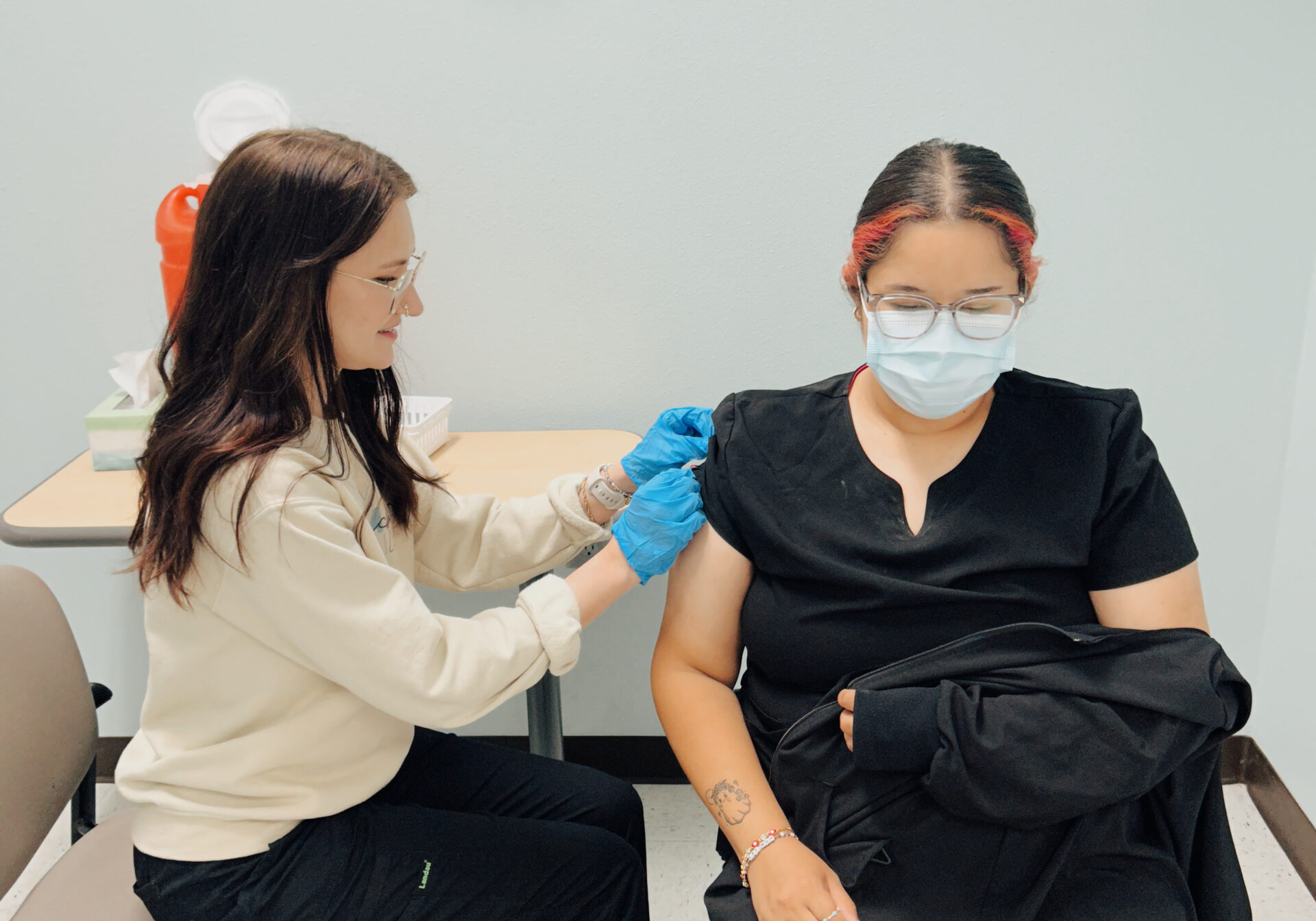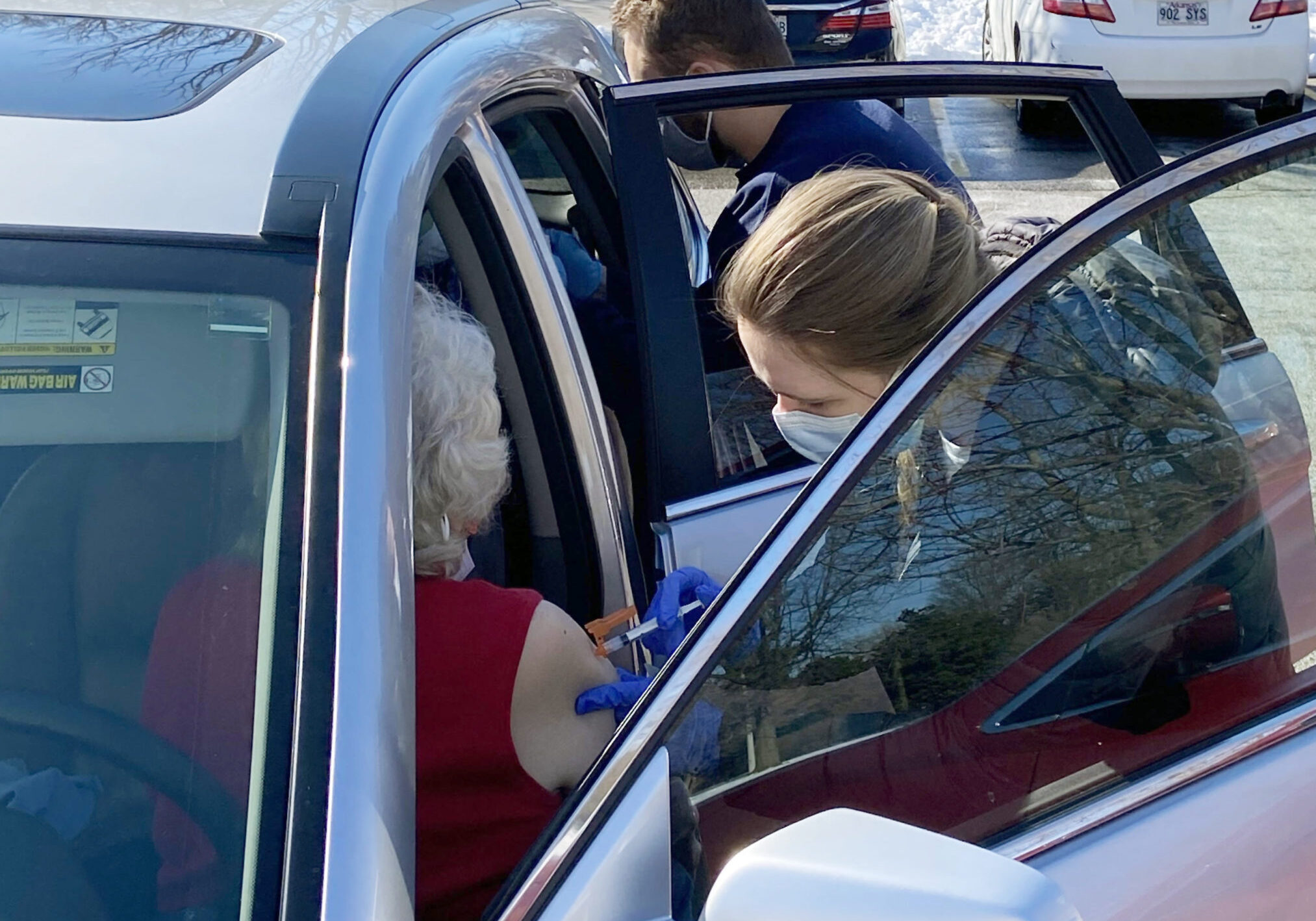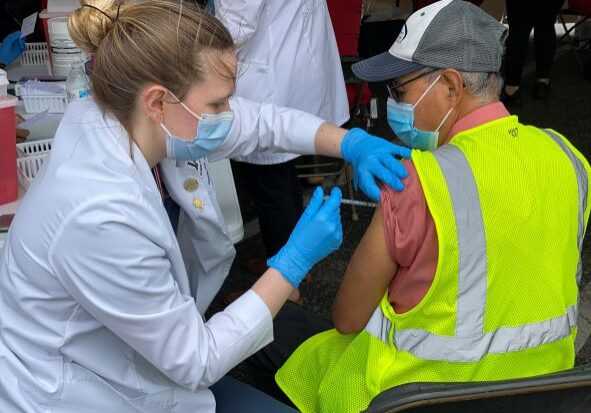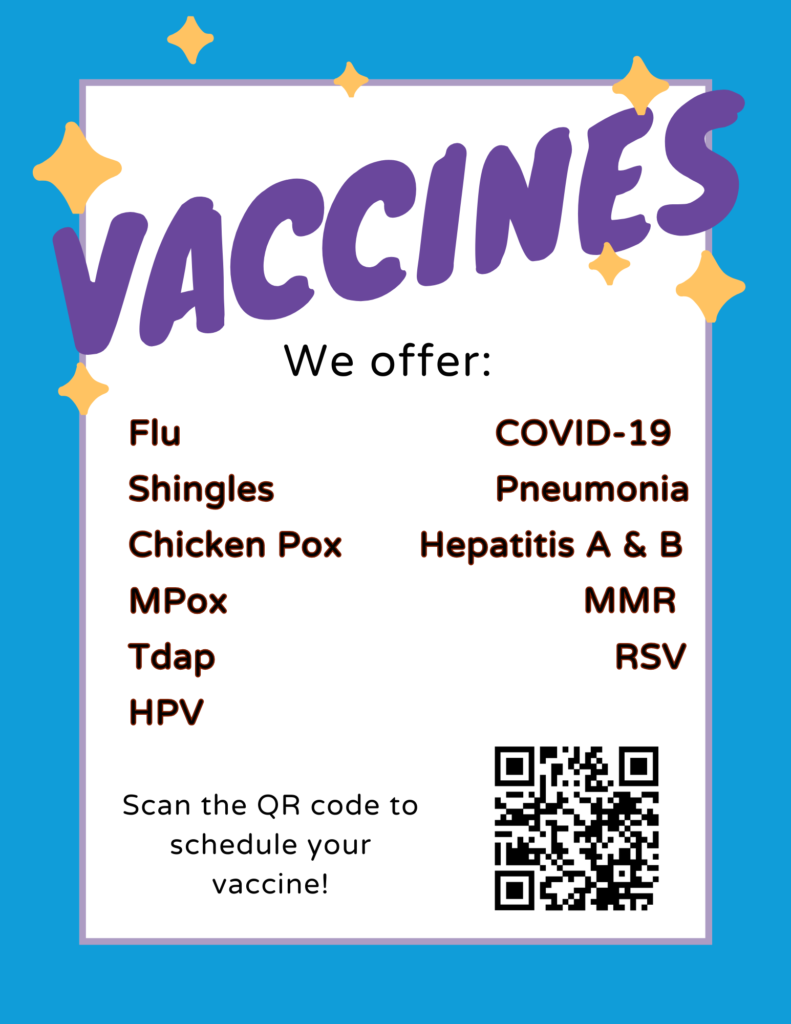Vaccines

Private Clinic Rooms
For your comfort and privacy, we have a patient room available specifically for vaccines and other clinical services.
Dedicated to your needs
For patients with limited mobility, our team will provide vaccines while you remain in the comfort of your vehicle. If transportation is a concern, call to inquire about in-home vaccinations or transportation resources.


Off-site Vaccine Clinics
Wanting to offer a vaccine clinic for your employees, church group or community organization? We can help! Email us at communitypharmacyspringdale@gmail.com to inquire about this service!
Vaccinations Offered
Offered seasonally beginning late September/early October until supplies last
Quadrivalent, Regular and High Dose formulations
CDC recommends that adults 50 years and older get two doses of the shingles vaccine called Shingrix (recombinant zoster vaccine) to prevent shingles and the complications from the disease.
Adults 19 years and older who have weakened immune systems because of disease or therapy should also get two doses of Shingrix, as they have a higher risk of getting shingles and related complications.
Tdap: Tetanus, Diphtheria and Acellular Pertussis
All adults who have never received one should get a Tdap shot. This can be given at any time, regardless of when they last got Td. This should be followed by either a Td or Tdap shot every 10 years.
CDC recommends pneumococcal vaccination for
- All children younger than 5 years old
- People 5 through 64 years old who are at increased risk for pneumococcal disease
- Adults 65 years or older
Below is more information about who should and should not get each type of pneumococcal vaccine.
CDC recommends two doses of chickenpox vaccine for children, adolescents, and adults who have never had chickenpox and were never vaccinated. Children are routinely recommended to receive the first dose at 12 through 15 months of age and the second dose at 4 through 6 years of age.
Hepatitis A is a liver disease caused by the hepatitis A virus (HAV). Hepatitis A can affect anyone. Vaccines are available for long-term prevention of HAV infection in persons 1 year of age and older. Good personal hygiene and proper sanitation can also help prevent the spread of hepatitis A.
The best way to prevent hepatitis B is by getting vaccinated. You need to get all shots in the series to be fully protected.
CDC recommends the following groups get vaccinated against hepatitis B:
- All infants.
- All children and adolescents younger than 19 who have not been vaccinated.
- Adults ages 19–59.
- Adults ages 60 and older at higher risk for hepatitis B.
Measles, Mumps and Rubella
Two doses of the MMR vaccine are recommended for children by healthcare providers as the best way to protect against measles, mumps, and rubella.
Adults aged 60 years and older may receive a single dose of RSV vaccine using shared clinical decision-making. For adults ages 60 years and older who decide with their healthcare provider to get an RSV vaccine, the best time to get vaccinated is in late summer and early fall — just before RSV usually starts to spread in the community.
All 11 to 12 year olds should get a MenACWY vaccine, with a booster dose at 16 years old. Teens and young adults (16 through 23 years old) also may get a MenB vaccine. Those who are getting MenACWY and MenB vaccines at the same visit may instead get a MenABCWY vaccine. CDC also recommends meningococcal vaccination for other children and adults who are at increased risk for meningococcal disease.
As of 5/21/24,
Everyone 6 months and older should get an updated COVID-19 vaccine.
People aged 65 years and older who received 1 dose of any updated COVID-19 vaccine (Moderna, Pfizer-BioNTech or Novavax) should receive 1 additional dose of an updated COVID-19 vaccine at least 4 months after the previous updated dose.
Patient out of pocket costs are subject to insurance coverage of vaccines and administration fee.
